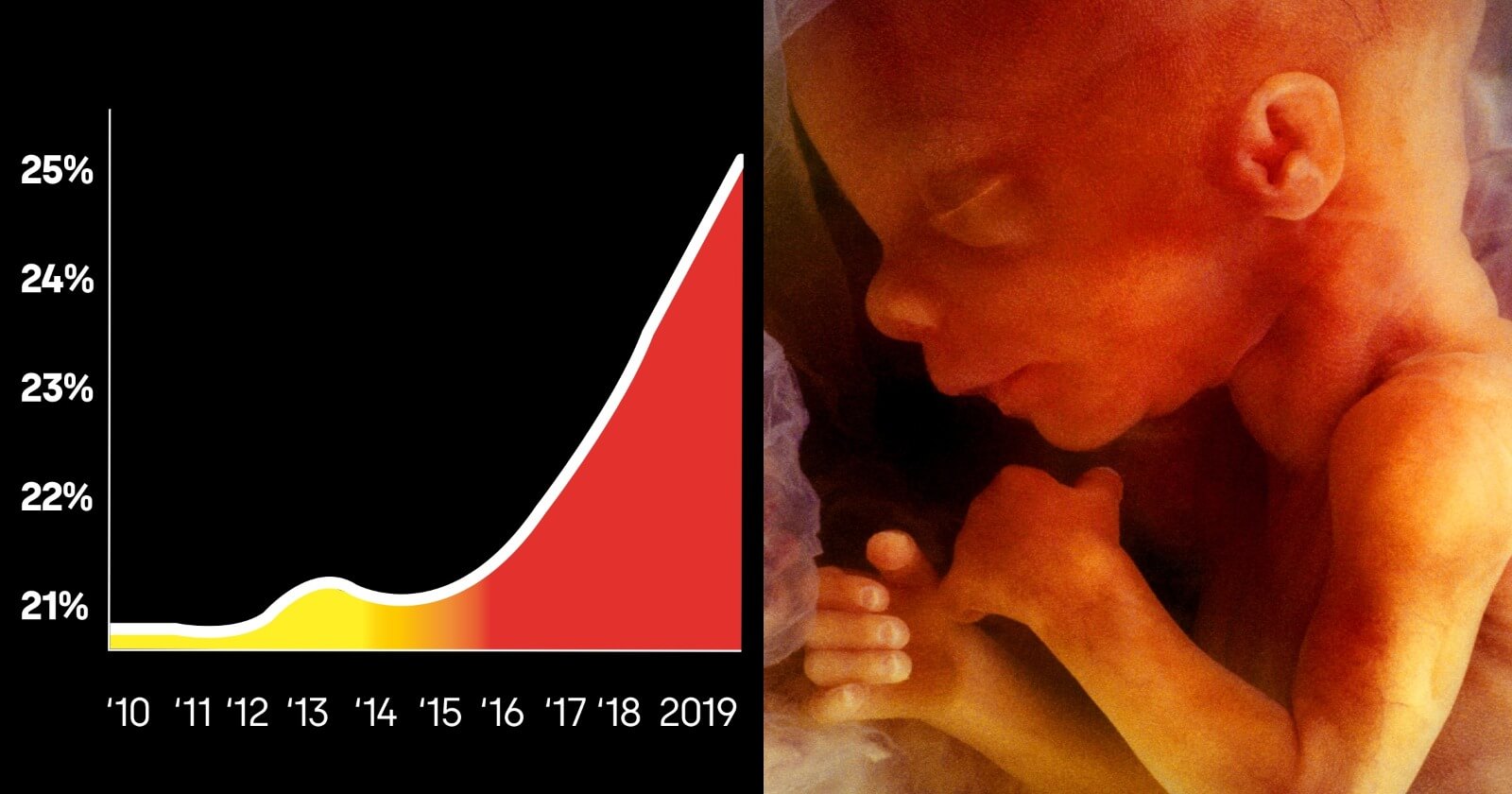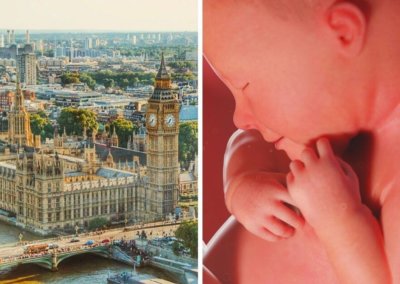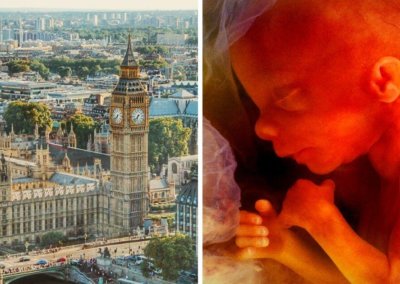New official statistics have revealed that a record one-quarter of pregnancies in England and Wales ended in abortion in 2019.
The figures, released by the Office of National Statistics, showed that 207,384 of the 821,809 pregnancies conceived by residents of England and Wales in 2019 ended in abortion.
This meant that 25.2% of pregnancies across women in all age groups were calculated to have ended in abortion that year.
The ONS said: “The percentage of conceptions leading to a legal abortion among all women in England and Wales increased from 24 per cent in 2018 to 25.2 per cent in 2019, the second year in a row this has increased for all age groups”.
The figure marks the highest percentage of pregnancies to end in abortion since records on this figure began in 1990 in England and Wales, and marks the first time the figure has exceeded 25 per cent.
Abortion statistics released by the Department for Health and Social Care last year showed the highest number of abortions ever recorded to date, with 209,519 abortions (including non-residents) occurring in England and Wales in 2019.
The abortion statistics released by the Department for Health and Social Care in May 2021 broke this record, showing 210,860 total abortions recorded in England and Wales in 2020, an increase of 1,341 from 2019.
Although annual statistics on conceptions among residents in England and Wales are not yet available for 2020, the increased number of abortions recorded that year suggests that the percentage of pregnancies ending in abortion will likely exceed the 2019 figure.
This significant rise in abortions has accompanied Governments introducing a temporary measure in March 2020 allowing ‘DIY’ home abortions in England and Wales.
Since ‘DIY’ home abortions were introduced, a number of significant problems have arisen.
According to a leaked “urgent email” sent by a regional chief midwife at NHS England and NHS Improvement on the “escalating risks” of ‘DIY’ home abortions, several women attended Emergency Departments for incidents including significant pain and bleeding, ruptured ectopics, and resuscitation for major haemorrhage. The email leak also revealed police opened a murder investigation into the death of a baby who they believe was born alive despite her mother taking ‘DIY’ home abortion pills.
A nationwide undercover investigation found evidence of abortion providers putting women at significant risk by not carrying out basic checks before sending them ‘DIY’ home abortion pills.
Spokesperson for Right To Life UK, Catherine Robinson, said: “It is a tragedy that over a quarter of all pregnancies in England and Wales ended due to abortion in 2019”.
“Every one of these abortions represents a failure of our society to protect the lives of babies in the womb and a failure to offer full support to women with unplanned pregnancies”.
“This significant rise in abortions in 2020 will likely mean that this statistic will be even higher for 2020. This is especially worrying given that the introduction of the home abortion scheme has put so many women at risk of complications, and has facilitated a number of illegal abortions past the legal term limit for ‘at home’ abortions. We are therefore calling on the UK and Welsh Governments to end these ‘DIY’ home abortion schemes immediately”.












